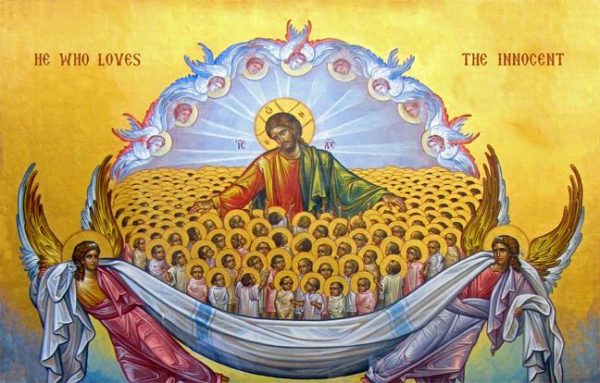How are we to console others when they are faced with the loss of a loved one?
Proverbs tell us to offer wine to those in bitter distress. We are to visit them and console them.
Saint Paul says, be sympathetic “weeping with those who weep.”
Saint Basil puts it this way:
Visit those who mourn and help them with consoling words, but be not overcome with grief, nor imitate the lamentations and wails of those who do not mourn in a manner pleasing to God.
Remember that Christ Himself wept at the death of His beloved friend Lazarus
On approaching the tomb to resurrect him, Jesus was “deeply moved” and exerted inner effort to control his emotions (cf. Jn 11:35,38)
The death of a spouse is most difficult for the one remaining. It creates a deep psychic wound. The one who survives is filled with worry. They worry about how they will be able to live without their partner who loved them. How will they cope without someone to share while dealing with the day to day problems. They wonder if they will be overcome with loneliness. This separation of man and wife is very difficult to bear. They must now live following their own way. The consolation they have is the many blessings they have received in marriage, in the love of their partner, the children they conceived and raised, and all the joys of a life together. Share the ones you know with them.
The loss of a child is also most difficult to bear. Especially an infant. Saint Gregory of Nyssa writes:
if none of the events of the world occurs without God, without divine assistance, and everything is dependent upon divine will which is wise and providential, then certainly there is a reason which bears the characteristics of the wisdom of God and His praiseworthy concern.
Saint Basil comforts by saying that the all wise God knows exactly how to work things out to the advantage to each person and why the span of life is unequal. He says that you did not lose a child, you returned it to God. He or she was not covered by earth but was received by heaven.
Saint Athanasios writes:
Sacred Scripture teaches us, we understand that infants of the faithful do not die because of sins, but often for the prudence of the parents. By this means God works two good things: the infants that leave here in purity will receive salvation there in eternity. Perhaps God called them early to be near Him by intention to avoid living a very sinful life. On the other hand, their departure can bring about more prudence in the parents.
Saint John Chrysostom says:
Behold you live 50 or 100 years, you become wealthy, acquire children, give dowries, have sons and daughters marry, and you rule over nations and peoples. After all this comes death, and after death comes judgement which has no end or repentance… This is why we rather consider blessed those who die as infants… for these infants it is the beginning of salvation. For what things will the infants give account if they have no experience of sin… o blessed infants, your dormition is blessed! O death of the incorrupt, you are the beginning of an endless joy!
Saint Photios comments holding before him deceased daughter of Tarsius:
Father, why do you mourn as if I have gone to a place of evils. In fact I am in a Paradise. The sight I behold is sweet and sweetest when I enjoy it. The experiences I have here surpass every belief. In this Paradise there is no evil and no deceptive serpent, the devil, to temp us with false whispers. Here we are all wise following divine and heavenly wisdom. Our entire life is a continuous holiday and feast. You too, father, will one day come here with my beloved mother.
















